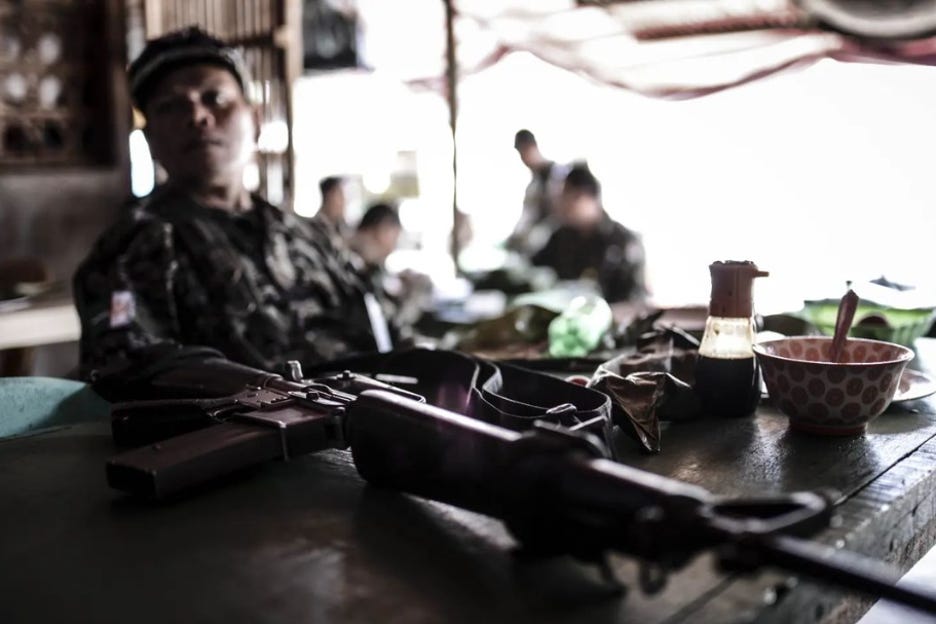
Concerns over regional peace arose after members of the Moro Islamic Liberation Front (MILF) and the Philippines army clashed in Basilan last week. The clashes occurred over three days and broke out over suspicions that MILF members were hiding or aiding militants involved in the May Basilan bombings. Three Filipino soldiers were killed, and 13 were wounded; the number of casualties amongst the MILF fighters is estimated to be between three and 10. MILF and security forces agreed to a ceasefire and no more clashes have taken place.
Moro Islamic Liberation Front
The MILF was a separatist group that came to be around the 1970s and sought to establish a Muslim state in the southern Philippines. Muslims are a majority in parts of the Mindanao region, but a minority in the country, which is nearly 90% Christian. MILF sought to represent the interests of the Bangsamoro people and was part of a violent insurgency that also involved other outfits over the decades. Interestingly, MILF and the Moro separatists enjoyed support from Muammar Gaddafi, who facilitated talks between them and the Philippines government. According to some estimates, nearly 150,000 people were killed and over two million people were displaced by the conflict. The conflict was not just between the Moro separatists and the government, as an armed Christian group, God’s Army, formed to retaliate against the Moros.
Bangsamoro Autonomous Region of Muslim Mindanao
Years-long negotiations between Manila and MILF culminated in a peace deal and notably in the ratification of the Bangsamoro Organic Law in 2019, which paved the way for the establishment of the Bangsamoro Autonomous Region in Muslim Mindanao (BARMM). A transitional government is in place, and the first parliamentary elections are planned to be held in 2025. The transition includes MILF decommissioning its fighters and handing over arms to authorities. While there have been issues with the peace talks, transition, and process, violence has decreased over the years. Last week’s firefights have been the first major clashes between the military and MILF since 2015. Thus, just the fact they took place is concerning and raises questions about decommissioning and how peace is being enforced.

Currently, the main security threats come from terrorist groups, that view the conflict in the southern Philippines under the banner of global jihad. These include the Bangsamoro Islamic Freedom Fighters (which splintered from the MILF), the Abu Sayyaf Group (ASG), remnants of the Maute group, and others organized loosely under the Islamic State banner. They have decreased in strength, especially considering that at one point some groups attempted to set up the Islamic State’s Southeast Asia caliphate in Marawi in 2017. But they are still active. Earlier this month, one person was killed and 11 people were injured after a bus was bombed in Sultan Kudarat, which is outside the BARMM.
From this comes another reason for concern: the army claims that MILF was sheltering militants involved in the May Basilan blasts. That attack is attributed to the ASG, which is entrenched across the Sulu archipelago, including in Basilan. This is concerning because the government and MILF fighters have worked together against jihadist groups in the southern Philippines, to strengthen the prospects for a lasting peace (in some cases, ex-fighters are joining security forces). If MILF fighters are indeed harboring ASG, or other militants, in some areas, this could indicate some level of disaffection between fighters on the ground and MILF’s leadership. The chief minister of BARMM, Ahod Ebrahim, who is also the MILF’s chairman, did say that the group was trying to stop its fighters from purchasing new weapons with money that they got by handing in their weapons. And this sort of collaboration between jihadist groups and MILF in the current paradigm (if true) is rare or at least is not well documented.
Last week’s clashes do not represent a total breakdown of peace in the southern Philippines, nor do they represent tensions between Manila and MILF on the bigger picture. However, the clashes do raise questions about the peace process and show how there is still a way to go. Violence will likely continue decreasing in the southern Philippines, but if certain issues are not addressed, the potential for a resurgence or flare-ups, or even support for jihadist groups, could persist.




